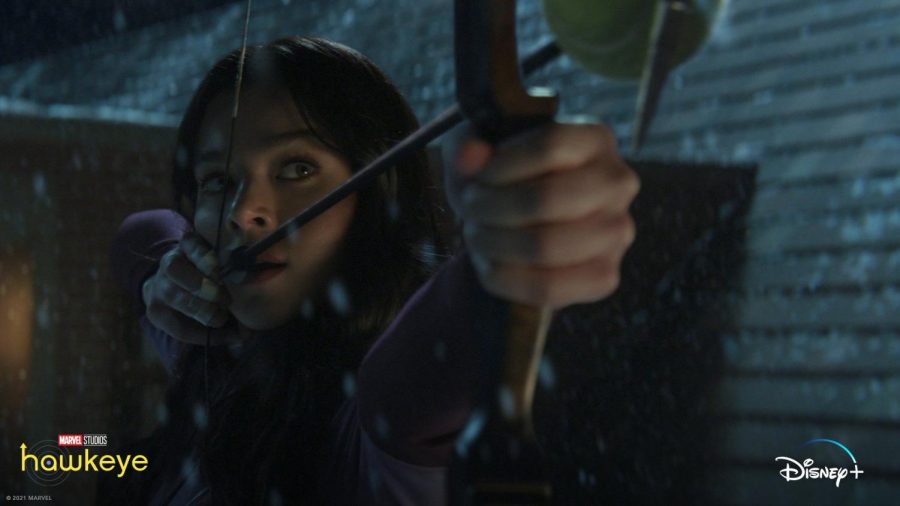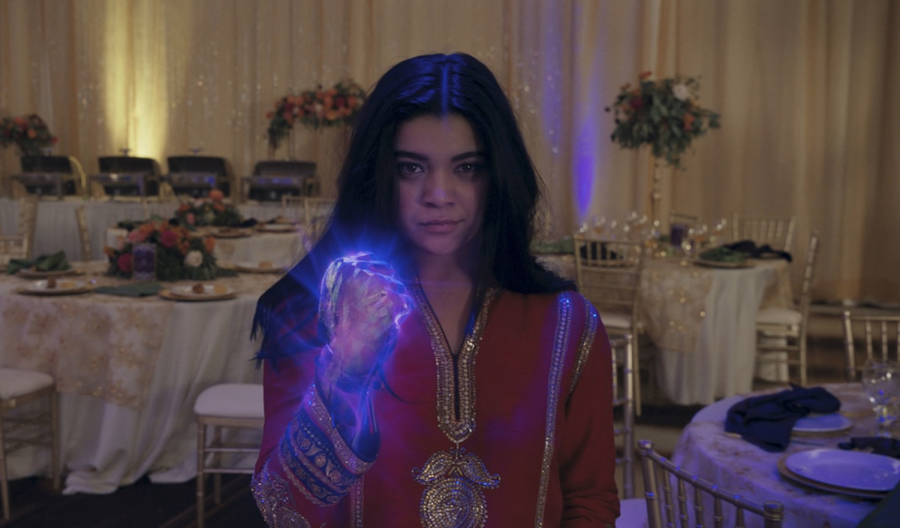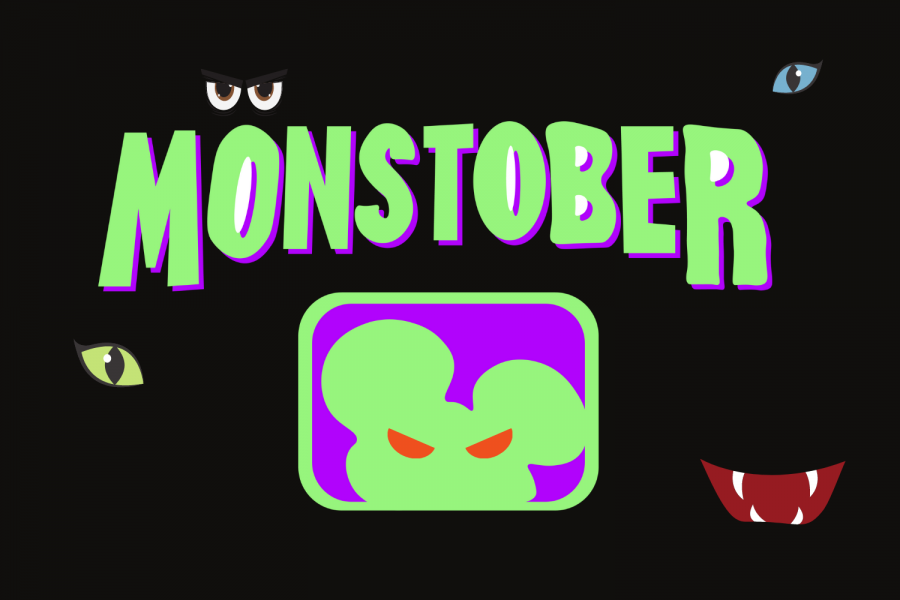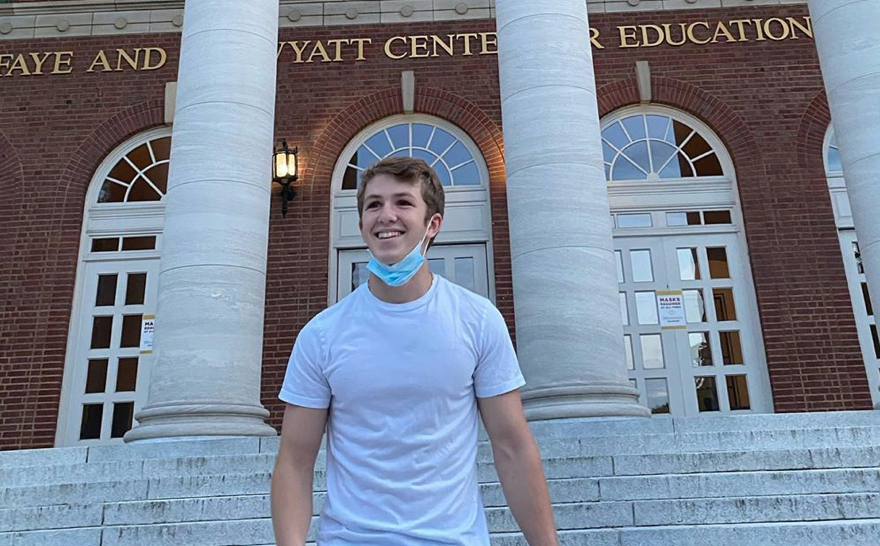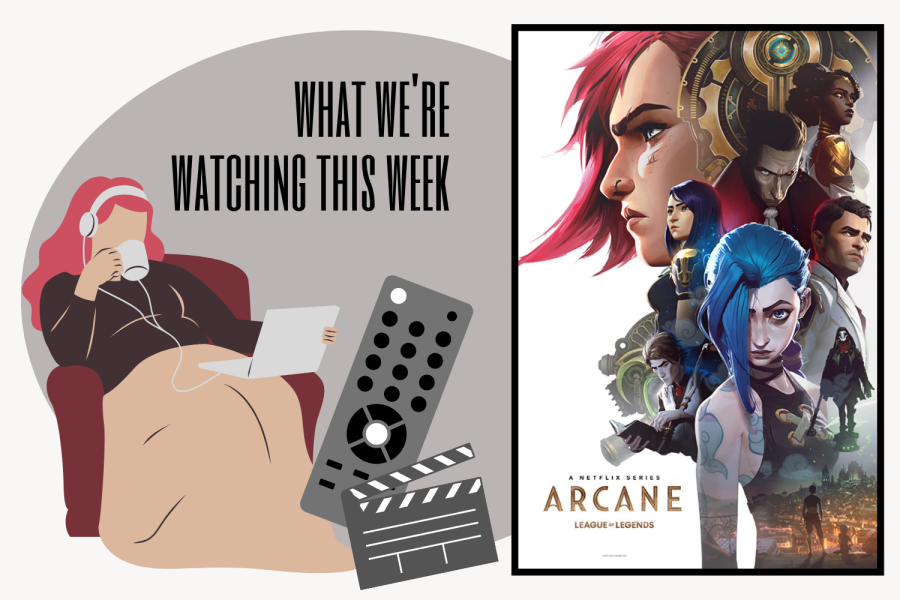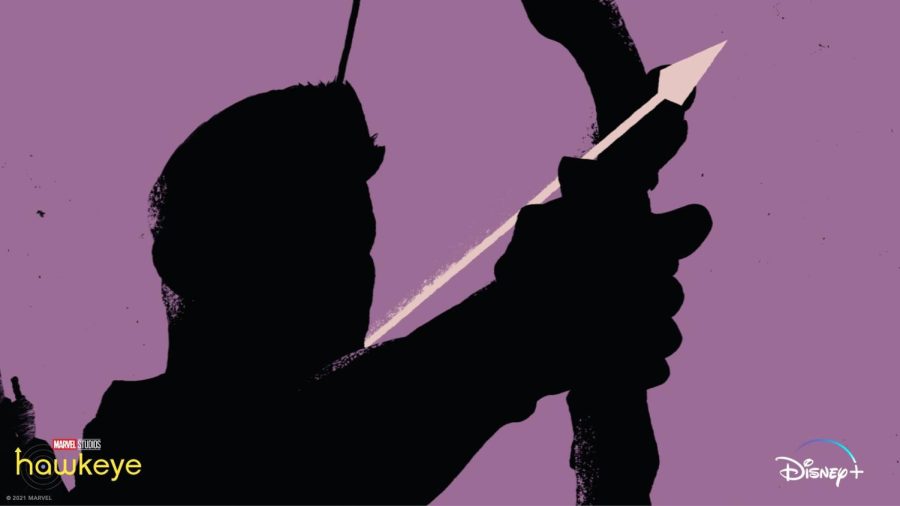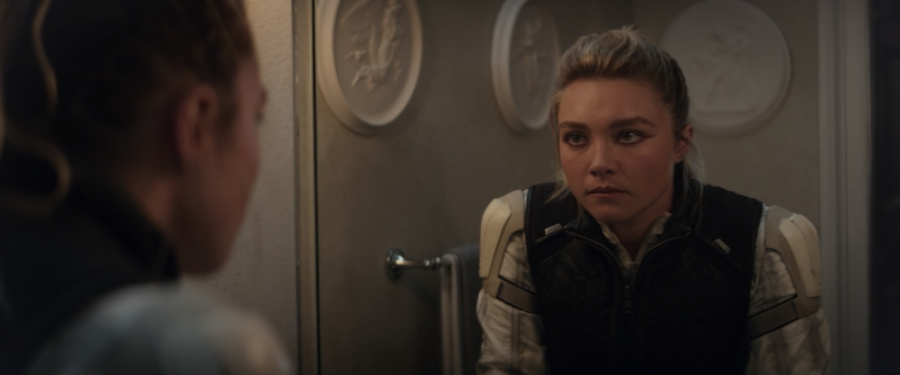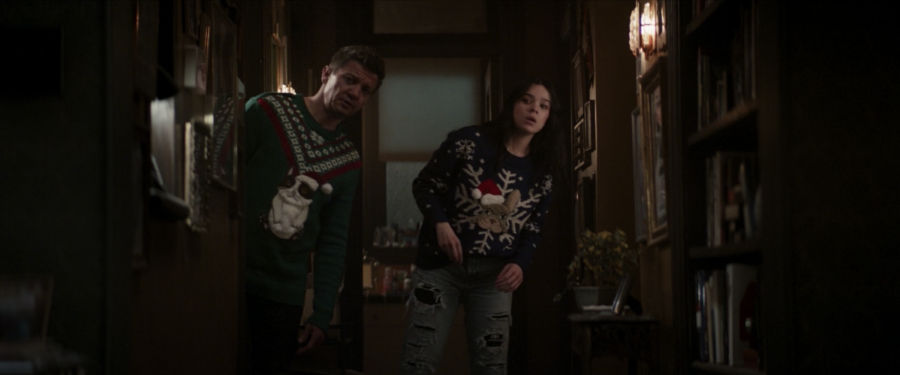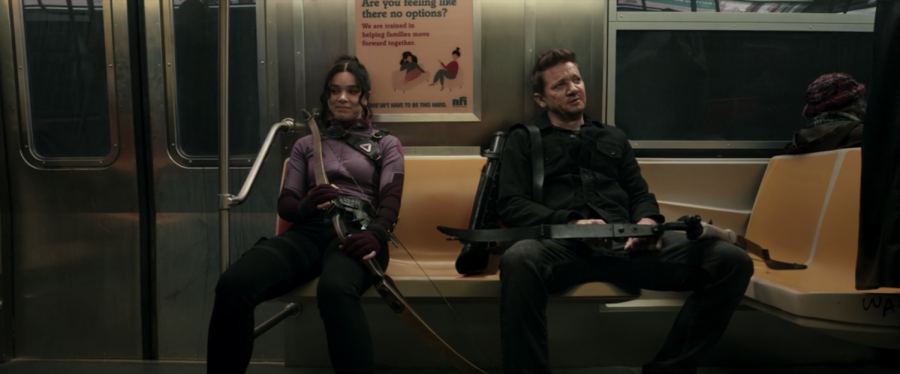I’m a little embarrassed to talk about the events of “Hawkeye.” Clint Barton seems embarrassed to be its main character. Jeremy Renner is probably embarrassed to star.
Okay, I have no idea if those last two statements are accurate. Yet this seemingly self-aware embarrassment is exactly why I can now say words that I never imagined would come out of my mouth: I like Hawkeye, both the show and the character.
“Hawkeye” being an actually decent show is probably the biggest surprise from Marvel Studios this half of the year, especially hot off the heels of “Shang-Chi and the Legend of the Ten Clichés Per Minute” or the depressingly bland “Eternals.” With two episodes behind us, “Hawkeye” is certainly no masterpiece—but Renner and co-star Hailee Steinfeld (who plays Kate Bishop) are quite the dynamic duo, not despite but because of their differences in age and experience. He could be her father, and that’s a great thing for the world their characters inhabit.
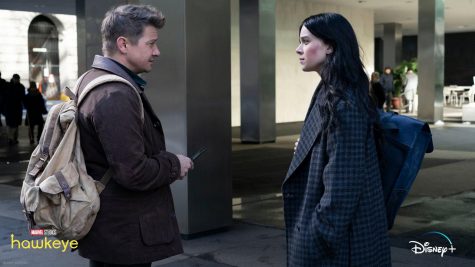
Renner (who plays Barton, aka Hawkeye) kills it with dryly delivered dad humor and exasperation like he’s trapped in Wanda’s “Modern Family” episode, and Steinfeld follows his example to a T. Despite Clint’s decades of experience in espionage and superheroing, he knows just as little as Kate about what’s going on, and neither have any idea at all what they’re doing. This gives the pair better on-screen chemistry than Sam and Bucky OR Loki and Sylvie—and Clint and Kate achieve this without homoerotic (or autoerotic, I guess?) subtext. Truly a Christmas miracle.
Because, after all, “Hawkeye” is a Christmas show. Or at least, it’s been marketed as one. Aside from gorgeous shots of New York City holiday decor and a Christmas song during literally every scene transition, this holiday obsession forces the show into the classic Christmas movie plotline: Clint must race against the clock to solve the conspiracy in which he finds himself, then make it home to his kids in time for presents. Both he and Renner seem to be aware of this cliché though—just like they’re overly aware of Clint’s inadequacy compared to the other Avengers’ superhuman abilities—and they tease the audience about it with lines like “It’s gonna be the best Barton Christmas ever!” I’m choosing to perceive this as teasing and not bad writing. I urge you to make the same choice. (Also, hey, Vandy ’21. We miss you.)
That doesn’t mean Renner is a bad actor, though—ironically, it took finally watching one of his non-MCU films (2016’s “Arrival”) for me to realize that he may be one of few MCU actors who can consistently perform well. His dialogue is way better than some of the garbage Marvel writers have been feeding us lately. He looks just as embarrassed to be part of the story as we are to be watching him in it. Plus, his constant glances over his shoulder or across the street (spy training, duh) simultaneously feel like the in-universe establishment of his jaded character that they’re supposed to be, and a fourth-wall-breaking joke with us, the audience, almost like he’s checking anxiously to make sure none of his actor friends see him doing this role. “Just kidding, guys, I’m not in the MCU. I’m a real actor too.”
Steinfeld is tuned into this exact same frequency, especially when she’s forced to interact with other characters, or should I say: caricatures. Though a pre-recorded answering machine message might have more energy than Vera Farmiga as Eleanor Bishop in some scenes, there are others where she channels a sincere, heartfelt mother—we can call that redemption. Tony Dalton as her mysterious fiancé, on the other hand, feels at all times like an AI failing the Turing test, which is harsh coming from a fictional universe that produced Paul Bettany’s Vision.
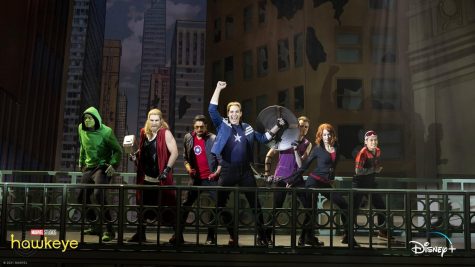
Again unintentionally breaking the fourth wall, Dalton’s shitty character (shitty as a character and shittily written) seems to be mocking us as the audience just as much as he mocks Kate on screen. This is a victory, because when we stifle a laugh, so does Kate. When we suppress the urge to curse him out for being terrible (in both ways), so does Kate. When we feel privy to a secret in scenes where Clint and Kate conspire, so does Kate—because she’s the one letting us in on that secret. It’s a very strange actor-audience dynamic that I can honestly say I’ve never perceived before. And it’s shot me through the heart with an arrow, keeping me coming back for more.
I’m now going to quote a text I sent to a friend less than five minutes into the first episode: “What kind of f*cked-up 13-year-old witnesses cosmic horrors beyond her comprehension destroying all of New York and then says, ‘I need a bow and arrow?’” This, of course, refers to the opening scene of the show, in which we re-experience the first Avengers film’s Battle of New York from Kate’s perspective.
Though the CGI in this scene is somehow worse than in 2012, this line summarizes everything wrong with and everything perfect about “Hawkeye.” Clint Barton is a human man who, for years now, has served on a superhero team alongside an invincible mutant, a bio-engineered super soldier and a literal god. He’s no one’s favorite, because everyone else is more special than he is. He’s just some guy.
But he is Kate Bishop’s favorite, as she tells him during a great scene where they discuss his branding as the strong, silent type. He emphasizes how he doesn’t care about branding because he’s not selling anything, he just wants to live his life. Kate replies that he is selling something: “inspiration,” to people like her—humans, who want to be superheroes, too.
Finally, then, two episodes into “Hawkeye,” I see the error of a question I’ve asked an embarrassing number of times: how could he be anyone’s favorite Avenger? Instead, I’d like to ask a new one: how could he not?
Episodes one and two of “Hawkeye” are now streaming on Disney+.

